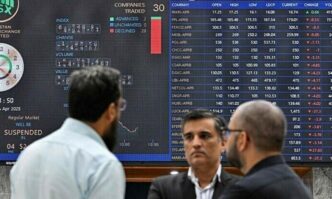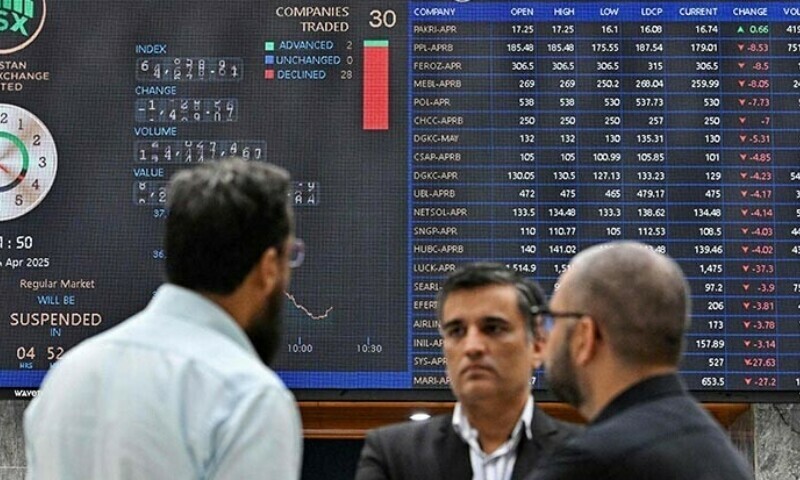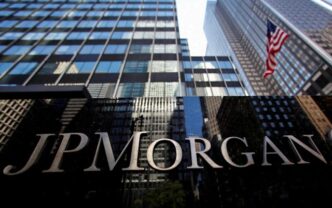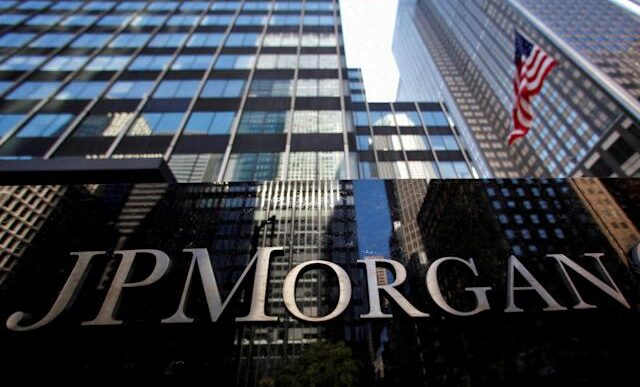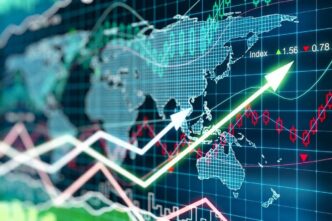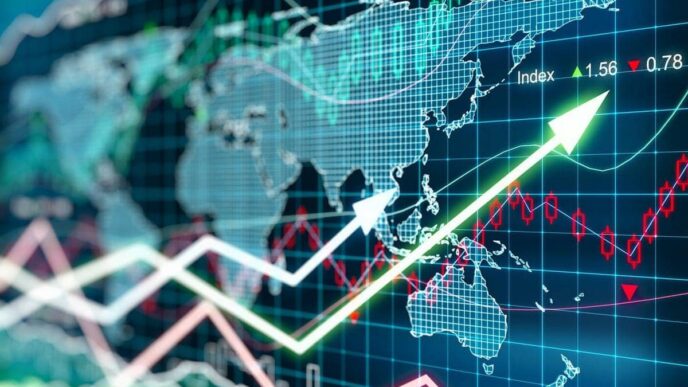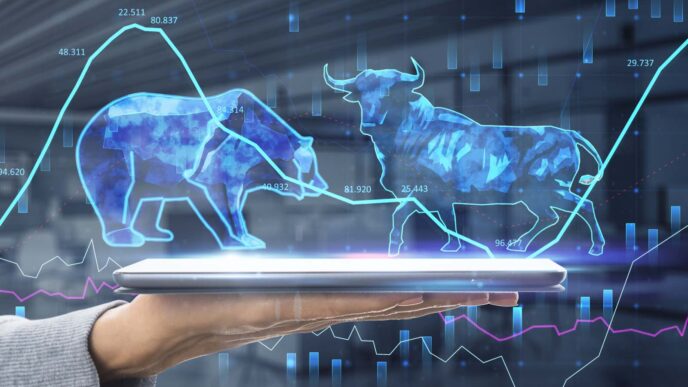Global financial markets faced a devastating downturn on Monday, exacerbated by escalating trade tensions between the United States and China, sparked by new tariffs imposed by the U.S. and China’s forceful retaliatory actions.
In Europe, Germany’s DAX opened 9% lower, and the UK’s FTSE 100 dropped by approximately 5%. Despite European markets faring slightly better than their Asian counterparts, the contagion quickly spread across the globe. Japan’s Nikkei 225 index closed 7.9% down, and the broader Topix index finished 7.7% lower. Major tech firms in Japan, including Sony, experienced heavy losses, with Sony’s stock plummeting more than 10%.
Hong Kong’s markets faced their worst day in nearly three decades, with the Hang Seng index falling over 13%, marking the sharpest decline since the 1997 financial crisis. Meanwhile, in mainland China, the Shanghai Composite Index sank by 7.3%, and the CSI300, which tracks the largest companies, saw a similar drop.
The market crash was largely triggered by the U.S. government’s unexpected decision to impose a 34% tariff on Chinese goods, which affected key sectors like semiconductors and electric vehicles (EVs), leading to widespread market panic, particularly in Asia. Analysts noted the surge in trading volumes in Hong Kong as an indication of forced liquidations and a broader panic among investors.
The turmoil in global markets mirrored the worst two-day stretch for U.S. stocks in five years. U.S. stock futures also plunged following sharp losses that erased more than $5.4 trillion from market value in the past week alone.
China’s swift retaliation, in the form of a 34% tariff on U.S. imports, has intensified fears of an all-out trade war between the two largest global economies. The Chinese government’s official mouthpiece reassured the public, stating the country has ample countermeasures and the resilience to withstand the pressures of U.S. tariffs.
In Taiwan, the Taiex index slumped by 9.7%, with major exporters like TSMC and Foxconn triggering circuit breakers after their stocks fell by nearly 10%. Oil prices also continued to suffer, with Brent crude dropping 2.4% and U.S. West Texas Intermediate falling by 2.5%.
Australia’s ASX 200 index closed 4.2% lower, while New Zealand’s NZX 50 index finished down 3.7%. In South Korea, the Kospi index ended the day 5.6% lower, with tech giant Samsung losing more than 5% of its value.
Gold, traditionally seen as a safe-haven asset, also took a hit, dropping more than 4% to around $3,030 per ounce.
In the U.S., stocks are expected to open sharply lower, with the S&P 500 nearing the threshold of a bear market, indicating a 20% drop from its peak. This has raised significant concerns for investors, who are now bracing for further market instability.
Billionaire investor Bill Ackman voiced concerns over the U.S. administration’s approach, warning that the global business community was losing confidence in the U.S. as a reliable trading partner. He urged the President to reconsider his aggressive trade policies to avoid an economic “nuclear war” that could undermine global stability.
In response, President Donald Trump downplayed the market’s volatility, asserting that the U.S. economy is becoming stronger and would eventually emerge as a global leader. Trump reiterated his stance on tackling the U.S.-China trade deficit, stating that a resolution would require China to address its surplus.
Other nations, including Japan and Taiwan, have also expressed their intentions to negotiate with the U.S. to ease the tariff pressures, while economists from Barclays remain cautious about the prospects of a successful resolution in Asia, adjusting growth forecasts for the region downward.
As the situation unfolds, global markets will likely continue to face turbulence, with many observers fearing that the ongoing trade war could lead to prolonged economic uncertainty.

